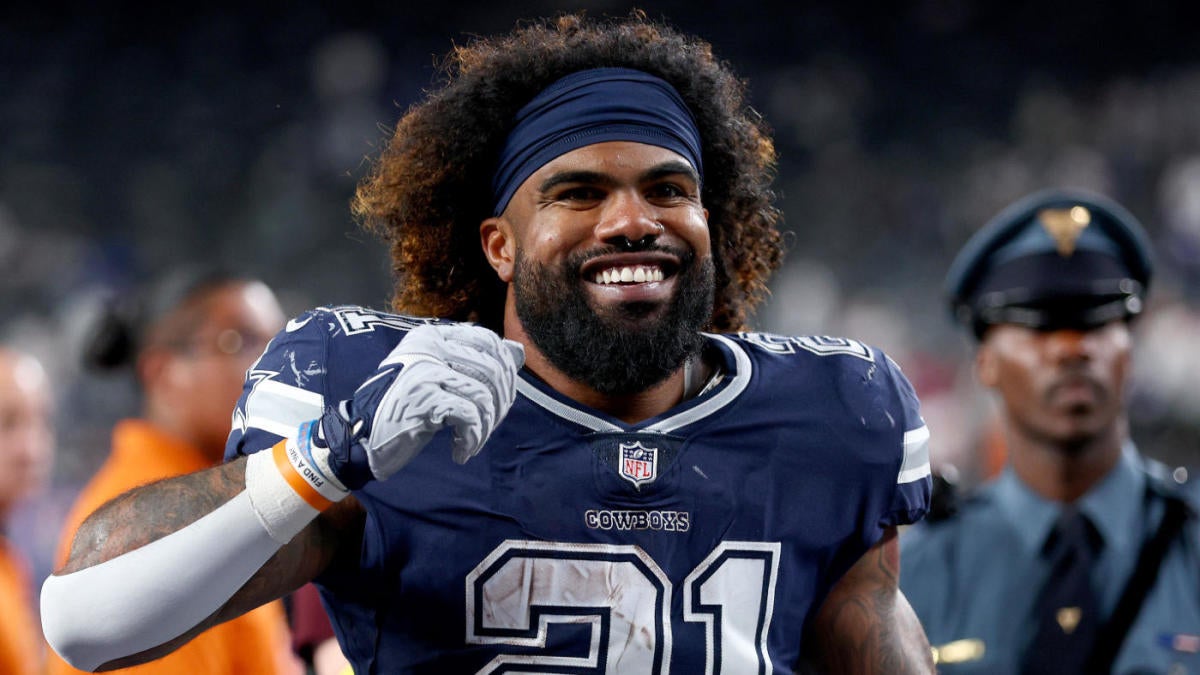Ezekiel Elliott was one of the most dominant running backs in the NFL for seven seasons with the Dallas Cowboys. He led the league in rushing yards twice (2016 and 2018), made four Pro Bowls, and helped the Cowboys reach the playoffs three times. He was also one of the most controversial players in the league, facing multiple suspensions and lawsuits for his off-field behaviour.
But on Wednesday, March 15, 2023, Elliott's tenure with the Cowboys came to an abrupt end. The team announced that they had released him after mutually agreeing to part ways. The move freed up about $13 million in salary cap space for the Cowboys, who were looking to rebuild their roster after a disappointing 6-10 season in 2022.
Why did the Cowboys decide to cut ties with their star running back? And what does this mean for Elliott's future and legacy?
The reasons behind Elliott's departure are complex and multifaceted. On one hand, Elliott's production had declined significantly over the past two seasons. He averaged only 4.0 yards per carry in 2021 and 3.7 yards per carry in 2022, well below his career average of 4.5 yards per carry. He also fumbled nine times in those two seasons, losing six of them. He missed four games due to injuries and COVID-19 protocols in 2021, and two games due to a hamstring strain in 2022.
On the other hand, Elliott's contract was becoming a burden for the Cowboys' salary cap situation. He signed a six-year, $90 million extension with $50 million guaranteed in 2019, making him one of the highest-paid running backs in NFL history. However, his contract also included a $13 million dead cap hit if he was released before June 1st. The Cowboys decided to take that hit now rather than wait until next year when it would drop to $6 million.
Another factor that influenced Elliott's release was his relationship with head coach Mike McCarthy, who took over from Jason Garrett after the 2019 season. McCarthy reportedly clashed with Elliott over his work ethic and attitude during practices and meetings. McCarthy also favoured a more balanced offence that utilized multiple running backs rather than relying heavily on Elliott as Garrett did. In fact, Elliott's backup Tony Pollard outperformed him on several occasions last season, averaging 4.9 yards per carry and scoring seven touchdowns compared to Elliott's four.
Finally, there was also some speculation that Elliott's off-field issues played a role in his departure from Dallas. Elliott has been involved in several legal disputes since entering
the league in 2016. He was suspended for six games by the NFL in 2017 for violating its personal conduct policy after being accused of domestic violence by his ex-girlfriend (the charges were later dropped). He was also sued by a security guard who claimed that Elliott assaulted him at a music festival in Las Vegas in 2019 (the case was settled out of court). Additionally, he faced criticism from fans and media for hosting a birthday party during the COVID-19 pandemic last year.
Elliott's release from Dallas marks an end of an era for both him and the Cowboys. He leaves behind a legacy of greatness mixed with controversy on and off
the field.
What lies ahead for him? As a free agent at age 27 (he will turn 28 in July
22nd), he still has some value left as a potential starter or complementary back
for another team looking for help at running back.
Some possible destinations include:
- The Cincinnati Bengals: The Bengals are coming off their first playoff appearance since
2015 thanks to their young quarterback Joe Burrow and wide receiver Ja'Marr Chase.
However, they could use some improvement at running back after losing Joe Mixon
to free agency this offseason.[4] They have about $20 million
in cap space available[4], enough to sign Elliott to a short-term deal if they are willing
to take a chance on him.
- The Miami Dolphins: The Dolphins are another team that made it to
the playoffs last season behind their defence and rookie quarterback Tua Tagovailoa.
They have been looking for an upgrade at running back since trading away Kenyan.
